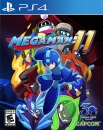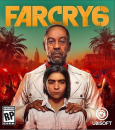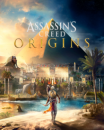RolStoppable said:
I fail to see how things have changed in any major way. What I do see, however, is a major change in how video games are analyzed by people with academic backgrounds, thanks to video games being around for more than four decades by now. Meaning that people who grew up with video games have entered academic fields since then and as such are people who don't approach the topic of video games like a concept that is alien to them. I cannot agree with the assertion that recent technological advancements have been a necessity to create games that fit the bill, because gamers who grew up in '80s and '90s should have no problem citing games from the SNES and PS1 generations that made them feel a wide variety of emotions; popular examples can be taken from a single series: Final Fantasy, namely the entries IV, VI and VII. The article further raises eyebrows with its example of Red Dead Redemption II and the suggestion that it could be approached like a piece of literature in about 20 years. The final example of even co-operative multiplayer games with no story and character development causing a variety of feelings makes the preceding examples seem pretty hollow, because at that point it should be abundantly clear that video games do not even require any elaborate story-telling and writing to make players feel things, and that video games have been popular since their very beginning because of their interactive nature and the emotions they evoke. Overall, we see the same pattern occur for virtually all popular video games and hidden gems alike: The people who enjoy these games get something out of them on an emotional level and it doesn't matter whether that is via a written story, through interactions with other humans in a multiplayer environment or something else. This has basically been true since the inception of the medium. What has also been true is that the same content can resonate very differently between individual players, so what Jaicee finds very appealing can be complete rubbish for many others, and vice versa. Even one of the most basic settings, such as in Super Mario Bros., can be interpreted in polar opposite ways. The more widespread point of view is the damsel in distress cliche with the accompanying underlying message that women are weak, but you can look at it as men are ought to help when a woman is in need of help. But the vast majority of gamers who enjoy SMB do not think about its plot, but rather take it as merely giving the player a reason to proceed, a cause to pursue in a game universe they get themselves immersed in. The bottom line is that people have always played the games that provided them with positive takeaways and it's no revelation that the desires and needs of individuals shift or change as they grow older, so I very much doubt that Jaicee is alone in that. We've all eventually played games that we know we would never have touched when we were 10, 20 or 30 years younger. |
Best coment, resumes everything I was thinking on writing particularly this:
" The people who enjoy these games get something out of them on an emotional level and it doesn't matter whether that is via a written story, through interactions with other humans in a multiplayer environment or something else. This has basically been true since the inception of the medium. What has also been true is that the same content can resonate very differently between individual players,"
Those studies OP mentions may have some validity but I don't think they can be as generalized as they think they can, as first the medium is interactive and as you say different people has experienced in different ways, and the feels everyone gets from them vary on a lot of ways
To this day lots of games are still deeply rooted to me emotionaly cause different things:
- The MS-DOS Warhammer 40k Space Hulk game, geniunely made me feel terror and true anxiety because of the tactical, terror gameplay and enviroment, but it was also lots of fun since me and my father deviced strategies to clear the hardest maps in the game, it also spark my interes in W40k universe.
-The characters that died or the lost companions during the history in the Wing commander games were very shocking the first time playing.
-The stories of the characters in Zelda majora's mask, despite a lot of them being secondary to the main quest some of them had very profound stories or interactions.
-Star Fox 64, played it to death I knew it wasnt too long or more complex but I still think is one of the best space shooters I have enjoyed with the cartoony characters and setting, plus the audio was superb, I liked to pester my bro about how magnificent it was with the voices and sound effects.
-Everything on the great Mega Man Zero saga 1-4, the setting, the plot, the characters, the gameplay, the technical aspects, the difficulty, the freaking ending.
-The developement of the partnertship with Midna in Zelda twillight Princess, so the ending still hits me hard.
-The Fire Emblem games for the complexity of their characters and conflicts, lots with very sad backstories, some of them outright tragedies.
-I wasn't very good at Dr. Mario, but it was always delightful watching my mother being so pro at the game, that she could pass level 20 in the high speed difficulty to watch the special "ending" scene, and then pass levels 21,22,23 and loop in the 24 until she finally slip up somthing and got game over.
-The hours and hours of laughs and jokes with the smash bros games over the years with the guys from school and our improvised "tournaments".
And basically everything from all the NES, SNES, N64, PS1, Arcade and all consoles and games I have played to this day and all the different emotions they gave me whether they were games with heavier or not storytelling, and that yes I think they have contributed to my developement as a human being.
















































































